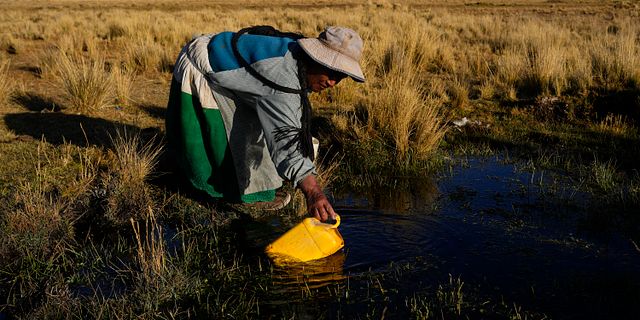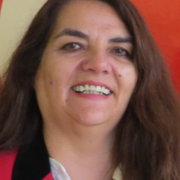
Martha Mamani fetches water from a natural spring in El Alto, Bolivia. Juan Carita / AP
Extreme drought in Bolivia after unusually warm winter
About 70 municipalities in Bolivia have declared a state of emergency due to extreme drought, national media write. The situation is considered strained in another 60 percent of the country's municipalities, AP states.
Among the vulnerable municipalities is the capital La Paz. Hundreds of thousands of Bolivians are affected and are being provided by the authorities with food and water to get through the crisis.
- With each passing day the situation worsens and we receive new distress calls from various communities and authorities, says Deputy Agriculture Minister Álvaro Mollinedo in a comment.
Among other things, the authorities fear that over 130,000 cattle are at risk of being killed.
The drought is the result of high temperatures and unusually little rain. According to the country's meteorological institute, rain in large quantities is not expected until December at the earliest.
Bolivia
map

The tap is empty in Bolivia. On the right, Marianela Montes de Oca, country director of Save the Children in Bolivia. TT/Save the Children
"How are our people even going to be able to prepare food?"
The aid organization Rädda Barnen sounds the alarm after the extreme drought and heat wave that has pressured Bolivia in recent months.
Save the Children believes that El Niño is a partial explanation, but it is hardly a consolation as over 200,000 families are now directly affected.
- The heat is a danger for children, their parents, animals and land. I can't even remember the last time we had rain, says Marianela Montes de Oca, Country Director of Save the Children in Bolivia.
The lack of clean water causes major complications for the possibilities of eating enough and taking care of one's hygiene.
- If this is supposed to be the coldest time of the year and it's 35 degrees outside. What does that mean for a country with 12 million inhabitants? How are our people even going to be able to prepare food?
Inga kommentarer:
Skicka en kommentar